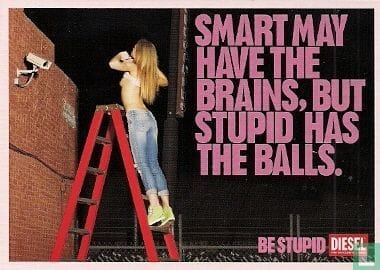- Modern Chaos
- Posts
- MC.74: Learning to Unlearn
MC.74: Learning to Unlearn
Be stupid (but clever with AI)
Hey everyone,
This week, I had the opportunity to give a presentation with the amazing people of Kaskad Paris on a concept that I believe is fundamental to thriving in the AI era: "Learning to Unlearn." I'd like to share these reflections with you.
The Paradox of Expertise
We've all spent years developing skills that were once considered essential: the ability to analyze, organize ideas, express concepts clearly, find logical connections, and create mental schemas.
These capabilities form the foundation of knowledge work—they're how we understand problems, decrypt subtext, comprehend hidden meanings, and construct logical plans in documents and presentations.
But here's the paradigm shift: AI is exceptionally good at these very tasks.
If I apply a simple Pareto principle, before AI, writing an email might have been 20% understanding the context and 80% composing the response. Today, that ratio should be inverted—we should focus much more on ideas and less on preparation, drafting, and organization.
The challenge? The more experience we have, the harder this shift becomes. These skills are so deeply ingrained in our daily work that they've become second nature. We struggle to step back and say, "Actually, I don't need to write this from scratch or organize these ideas myself. That's no longer where my value lies."

Be Stupid (but clever with AI!) - Diesel, Anomaly London, 2010
Where Human Value Remains
Our value now comes from focusing on ideas themselves—having brainstorming sessions and bouncing concepts, even with AI as a partner. The planning, logical organization, structuring, and exposition? The machines will likely outperform us there.
This requires humility, but it also opens new opportunities. We become editors rather than writers, curators rather than creators. Our experience becomes valuable in evaluation, filtering, and selection—becoming judges of our own thinking. It's as if AI serves as a junior version of ourselves, proposing and organizing ideas that we then review with the perspective that only experience can provide.
The Way Forward
So what does "learning to unlearn" look like in practice?
Recognize which skills to delegate: Identify the parts of your work that AI can handle effectively—often the structured, logical, organizational tasks.
Focus on uniquely human contributions: Devote your energy to ideation, critical evaluation, and contextual understanding that machines still struggle with.
Become an expert editor: Develop the ability to quickly assess AI outputs, selecting what works and refining what doesn't.
Embrace the discomfort: Accept that feeling less needed for tasks you've mastered is uncomfortable but necessary for growth.
Redefine your value: Understand that your experience now manifests in curation and judgment rather than production.
The hardest part isn't learning new skills—it's unlearning the behaviors and patterns that have defined our professional identities. But as AI continues to evolve, our ability to adapt by letting go of old paradigms may be the most valuable skill of all.
Cheers, Olivier
Modern Chaos explores the intersection of technology, business, and society in an age of rapid transformation. Subscribe for weekly insights on how AI and other emerging technologies are reshaping our world.
What do you think of this email?You can add more feedback after choosing an option, this helps a lot 👍 |
Like this newsletter? Forward it to a friend and have them sign up here.
Until next Thursday 🎉
Reply